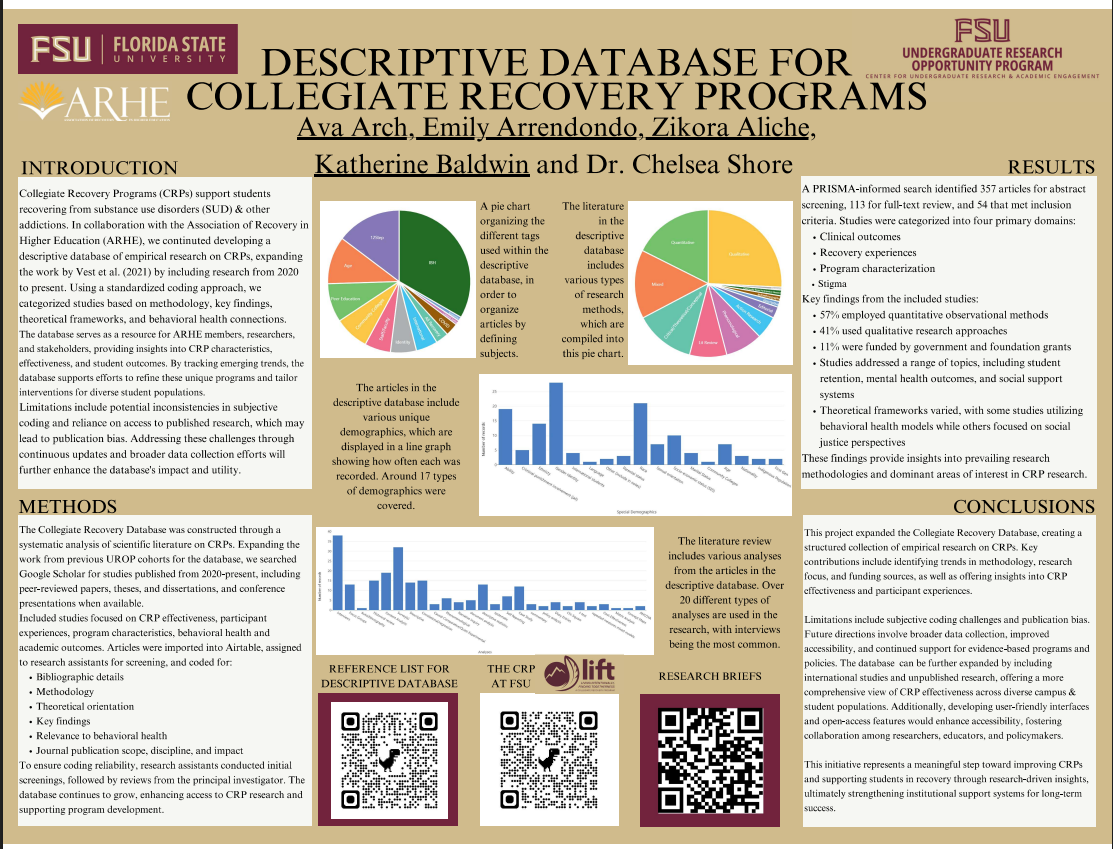Research Symposium
25th annual Undergraduate Research Symposium, April 1, 2025
Ava Arch Poster Session 3: 1:45 pm - 2:45 pm / Poster #5

BIO
My name is Ava Arch, and I’m a first-year student at Florida State University from New Orleans, Louisiana. I’m currently exploring my academic interests in biology, psychology, and finance, with a strong focus on how these disciplines intersect in healthcare. I’m particularly interested in research related to behavioral science, health economics, and the biological basis of mental health, and how these areas can contribute to better patient care and accessibility.
My ultimate goal is to attend dental school and pursue a career in dentistry, where I hope to combine clinical expertise with a deeper understanding of patient behavior and financial accessibility in oral healthcare. I’m passionate about community health and plan to be involved in research and outreach that supports underserved populations. As I continue my studies at FSU, I’m eager to gain hands-on experience through research opportunities, volunteer work, and internships that will prepare me for dental school and beyond.
Descriptive Database for Collegiate Recovery Programs
Authors: Ava Arch, Dr. Chelsea ShoreStudent Major: Biological Sciences
Mentor: Dr. Chelsea Shore
Mentor's Department: Descriptive Database on Collegiate Recovery Programs Mentor's College: Association of Recovery in High Education (ARHE) Co-Presenters: Emily Arrendondo, Zikora Aliche, Katherine Baldwin
Abstract
Collegiate Recovery Programs (CRPs) offer a supportive environment for students in recovery from substance misuse and other behavioral or process addictions. They are proven to promote academic success, social well-being, and personal growth. A comprehensive database was developed by the Association of Recovery in Higher Education (ARHE) in 2023 to consolidate existing research on CRPs among the college student population. This project involved identifying and reviewing studies, coding key findings, and categorizing articles based on social justice considerations, theoretical frameworks, methodologies, and similarly themed studies (e.g., community colleges, COVID, all-recovery, and non-traditional student populations). Research briefs were created to summarize thematic trends across the studies in efforts to bridge practice and theory (praxis).
The published database currently includes approximately 140 articles and reveals a consistent trend in satisfaction and improved academic outcomes among students and staff participating in CRPs. Findings overwhelmingly indicate that CRPs positively impact student life, including academic performance, social integration, and overall well-being. Data further highlights the vital role of CRPs in promoting student success and emphasizes the necessity for ongoing funding and institutional support to enhance recovery-friendly campus environments. Nonetheless, these programs are understudied and warrant further empirical investigation by researchers.
Keywords: Recovery, College, Mental Health, Community-based.

